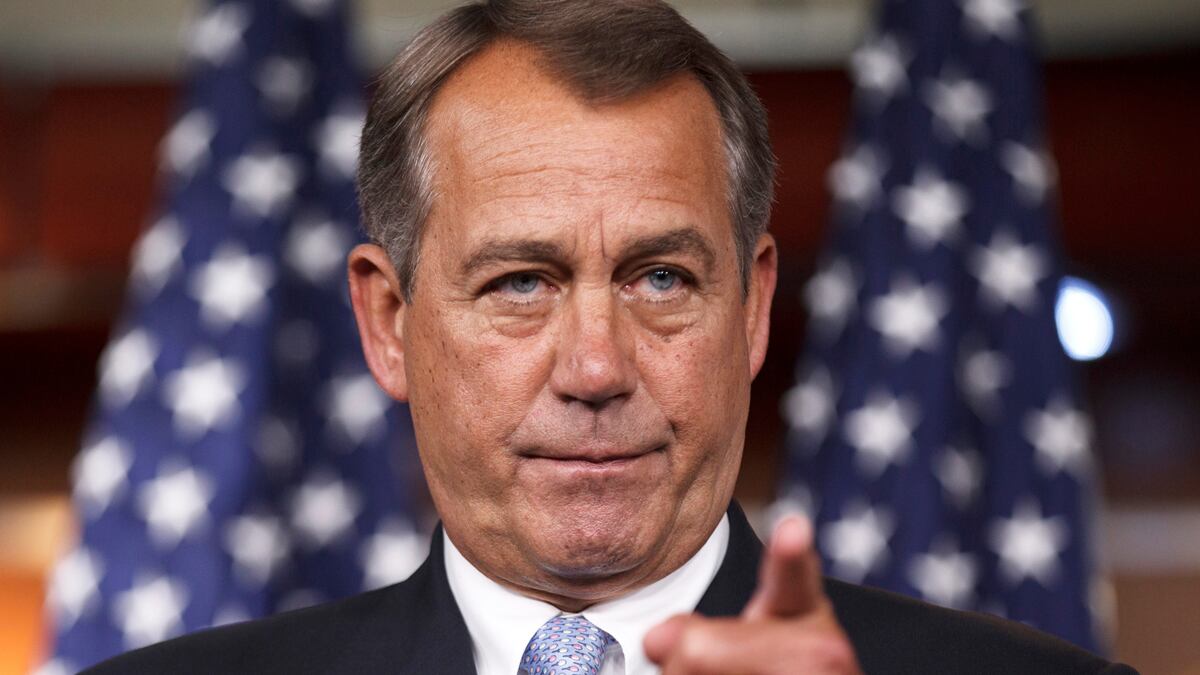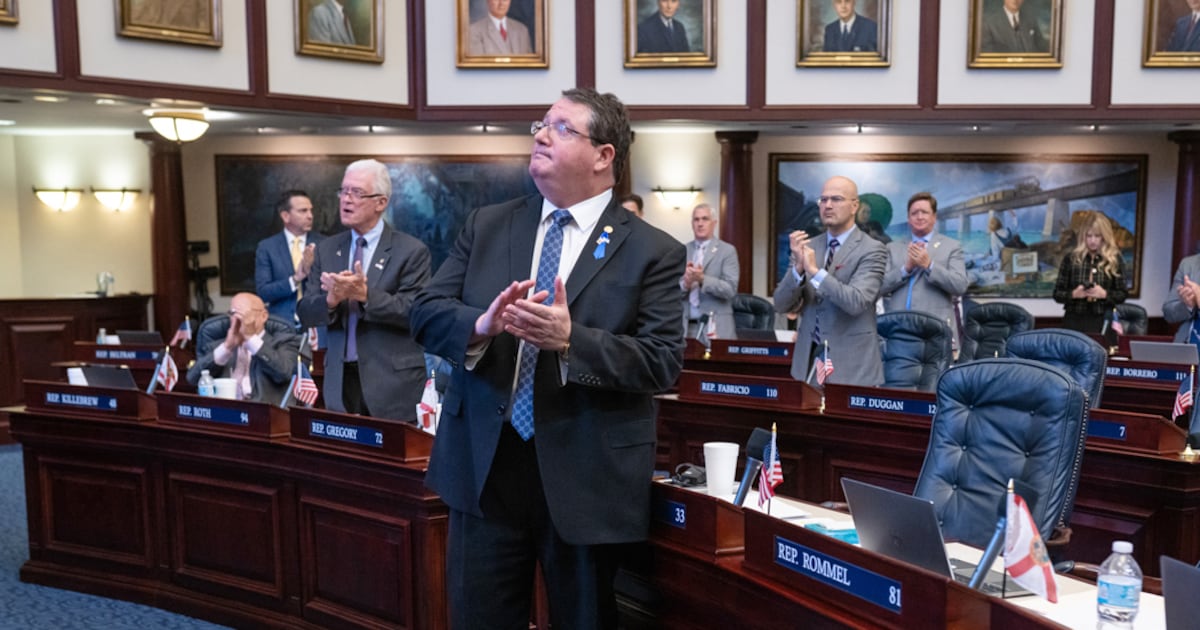House Speaker John Boehner laid out House Republican plans for dealing with the nation’s ballooning debt Tuesday, making it clear the GOP will use the year-end debt-ceiling deadline as a way to insist on deep cuts to spending while opposing tax increases at all levels—setting up a scenario identical to last year’s standoff that eventually led to the first-ever downgrade of America’s AAA credit rating, which Boehner incidentally blamed on President Obama.

With Democrats already insisting that some tax increases be a part of any final package, Boehner’s remarks all but guarantee a replay of last summer’s debt-ceiling crisis. They were also a part of a coordinated full-frontal assault on Obama’s record of spending, debts, and deficits—the trio of issues Republicans believe could be a silver bullet in their efforts to retake the White House and Senate in the November elections.
Hours before Boehner spoke in Washington, Mitt Romney also gave a major speech on the debt in Iowa. Republican National Committee chairman Reince Priebus wrote an op-ed in the New Hampshire Union-Leader, while the RNC released a video called Empty Promises: Debts & Deficits, and conducted three days of conference calls in battleground states, all hammering Democrats on spending and debts. Taken together, a senior adviser said the RNC is looking to take advantage of a dynamic the adviser calls “a huge opportunity.”
ADVERTISEMENT
Internal and independent polls have shown that Obama is well liked by voters personally, but Americans have deep anxieties over the national debt and deficit, which have grown during the Obama administration. The national debt has increased by more than $5 trillion, while annual federal spending has increased 21 percent during the president’s three years in office.
A recent Gallup poll showed “spending and deficits” as the No. 1 issue registered voters ranked as “extremely important” to their votes in November, ahead of unemployment or access to health care.
When asked which issues worry them “a great deal,” large majorities of all voters—92 percent of Republicans, 80 percent of Democrats, and 66 percent of Democrats—pointed to the debt and deficit. Republicans believe such numbers have kicked open a door they want to walk through in November.
“This week we are campaigning against the president’s failure to deliver on his promises to cut the deficit in half,” said RNC press secretary Kirsten Kukowski. “Three and a half years later, Obama has become the undisputed debt king, increasing government spending while wasting taxpayer dollars with debacles like Solyndra and the GSA.”
But blaming the president for the spike in government spending could prove to be a high-wire act for Republicans, who had their hands on the wheel along with Democrats when some of the largest drivers of today’s debt, namely the $800 billion stimulus, the wars in Iraq and Afghanistan, and the 2001 and 2003 Bush tax cuts, were approved.
Both Romney, in his speech in Des Moines, and Boehner, speaking at the fiscal summit of the Peterson Foundation, laid out the dangerous financial terrain that leaders of both parties in Washington now face, with a fragile recovery, spending that far exceeds revenues, and most ominously, a federal balance sheet that Romney called a “prairie fire of debt.”
Romney and Boehner each vowed to slash spending, reform the tax code and entitlements, and take a pro-business approach to jump-starting the economy.
But above and beyond the math of the deficits, Romney, Boehner, and even Priebus used the president’s record on spending to accuse him of betraying Americans’ trust.
“America counted on President Obama to rescue the economy, tame the deficit, and help create jobs,” Romney said. “Instead he bailed out the public sector, gave billions of your dollars to the companies of his friends, and added almost as much debt as all the prior presidents combined.”
Boehner went after Obama in unusually personal terms, pointing to their botched debt-ceiling negotiations last year as evidence of the president’s lack of political will.
“I believe President Obama cares about this country and knows what the right thing to do is,” he said. “The difference between knowing what’s right and doing what’s right is courage, and the president, I’m sorry to say, lost his.”
Although Obama is clearly vulnerable to the attacks, a danger also exists for Republicans, who are hardly seen as blameless in the country’s economic struggles and, in particular, Congress’s near total failure to address the same issues Republicans blamed Obama for on Tuesday. Americans’ rewarded the last debt-ceiling impasse by giving Congress a 10 percent approval rating, an all-time low that has crept up just 2 points to 12 percent today.
But Republicans have made the calculation that last year’s debt-ceiling negotiations were more damaging to the president than to their cause of holding the line on spending at all costs.
“If the president continues to put politics before principle—or party before country, as he often accuses others of doing—our economy will suffer, and we may well miss our last chance to solve this crisis on our own terms,” Boehner said.
In response, Treasury Secretary Tim Geithner warned that even hinting at stalling the increase in the debt ceiling is a failure of leadership.
“Only Congress, of course, can act to raise the debt limit—and we hope they do it this time without the drama and the pain and the damage they caused the country last July,” he said at the fiscal summit.






